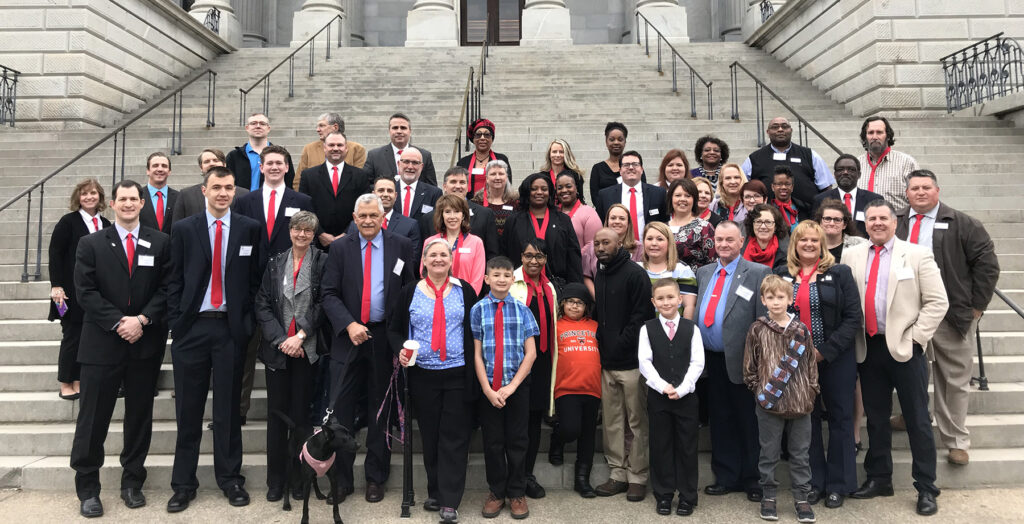Patient Advocacy is an area of lay specialization in health care concerned with advocacy for patients, survivors and caretakers. The patient advocate may be an individual or an organization, often, though not always, concerned with one specific group of disorders.
Health Advocacy encompasses direct service to the individual or family as well as activities that promote health and access to health care in communities and the larger public. Advocates support and promote the rights of the patients in the health care arena, help build capacity to improve community health and enhance health policy initiatives focused on available, safe and quality care.
State advocacy days are an important and major priority of chapter advocacy programs throughout the nation’s chapters. During advocacy days, BDASC will host a day at the state capitol to meet with state legislators and share their stories and concerns, and ask for support for our collective priorities. It is also a great time to educate policy makers on what it is like to live with a bleeding disorder in South Carolina. BDASC’s capitol days consists of a training session for participants the evening before the legislative day where priorities are reviewed, speakers provide input on advocacy issues and training is provided. Teens are provided advocacy training separate from adults to assist them with advocacy tools and individual training. The followed day, advocates meet with their elected officials to educate them about hemophilia and related bleeding disorders. Constituents will visit their representatives for various reasons including to educate them on bleeding disorders, build relationships for support, thank them for taking the time to meet, and advocate for the needs of the community. Helping our elected officials to understand what matters most to those affected by bleeding disorders is important. Our elected officials are eager to learn and we are equally eager to tell our stories and ask for their support.

Advocacy is a key component of our mission at BDASC. It is also important to those affected by bleeding disorders in assuring health care needs are being met especially when living with a rare and chronic, lifelong disorder. Advocating for you and your family will be key in your quality of care. Knowing how to advocate for yourself and your family takes practice and learning. On this page are some helpful links that will help enhance your advocacy skills, answer some of your questions about advocacy, and arm you with the materials that you’ll need when talking with policymakers and others about hemophilia and bleeding disorders.

Bleeding Disorders Association of South Carolina is a 501(c)3 non-profit organization and a chapter of the National Hemophilia Foundation and a member organization of Hemophilia Federation of America.
Copyright © 2024 Bleeding Disorders Association of South Carolina. All Rights Reserved.
Member of The National Bleeding Disorders Foundation | View our Privacy Policy | Website managed by Blotter.com